15 BEST J. COLE SONGS
On April 20th 2018, J. Cole released his fifth studio album, KOD. Fittingly, it wasn’t even the biggest hip-hop story during that time since Drake also revealed a release for his latest album, Scorpion, while, simultaneously, Kendrick was awarded the Pulitzer Prize for his album DAMN.
Drake, Kendrick, and J. Cole have been hip-hop’s big three throughout the 2010s, but there’s no denying that Cole has always been overshadowed by the Co-Kings. Although he’s never been as popular as Drake or as skilled as Kendrick, J. Cole has been a relevant player in the rap game for just as long.
After blowing up in the summer of 2009 with the release of his second mixtape, The Warm Up, J. Cole became the first artist signed to Jay-Z’s Roc Nation. In September 2011, his debut album, Cole World: The Sideline Story was released, surprisingly, to mixed reviews.
Within a year, he was lapped by his peers, as Drake’s Take Care and Kendrick’s Good Kid M.A.A.D City were heralded as classics, while J. Cole had yet to release the follow up to Cole World. He would redeem himself with 2013’sBorn Sinner, but by that time it was too late; from then on, Cole was pigeon-holed as the third-wheel to Drake and Kendrick’s co-Kingship.
In recent years this hasn’t mattered. J. Cole’s proudly operated in the shadows, establishing his status as hip-hop’s voice of reckoning. His last two albums — 2014’s Forest Hills Drive and 2016’s 4 Your Eyez Only — despite being announced, much like KOD, without prior notice, famously went Platinum with no features.
In honor of an exceptional career, here are J. Cole’s 15 best songs.
15. “I Get Up” (2009)
Album: The Warm Up
Producer: J. Cole
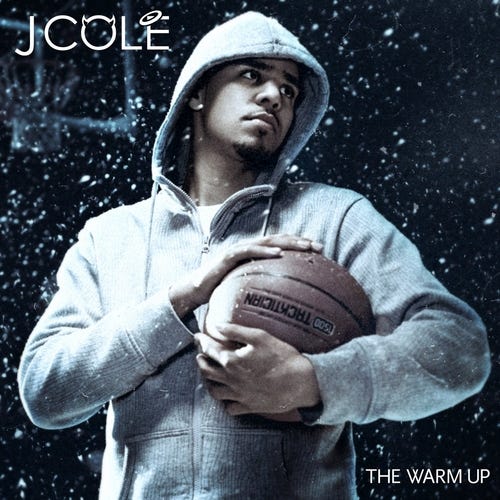
Listening to “I Get Up” in 2018 should make you cringe. On the track J. Cole, only 23 years-old at the time, is raw, nowhere near the polished lyricist he’d become, while its beat, a mix of jazzy horns and snares, is simple; and yet, it works becauseof this amateurish feeling. Cole’s energy is irresistible, as he speaks on the plights of the hood from an optimistic view. While Cole displays his potential as a socially conscious MC, most impressive is his ability to submit such a catchy hook in an otherwise serious song; you can only sing along, with an added strut in your step, as Cole croons, “I get up, I see the clouds from my window, I pray the sun gon’ shine this way/And where I go as the wind blow, Momma your son gon’ find his way/And if I gotta crawl I’mma make to the end though, Up to the top if climb my way/And tell ’em I’ma rise, I’m on my, Headed for the sky, I’m on my way.”
14. “No Role Modelz” (2014)
Album: 2014 Forest Hills Drive
Producer: Phonix Beats & J. Cole
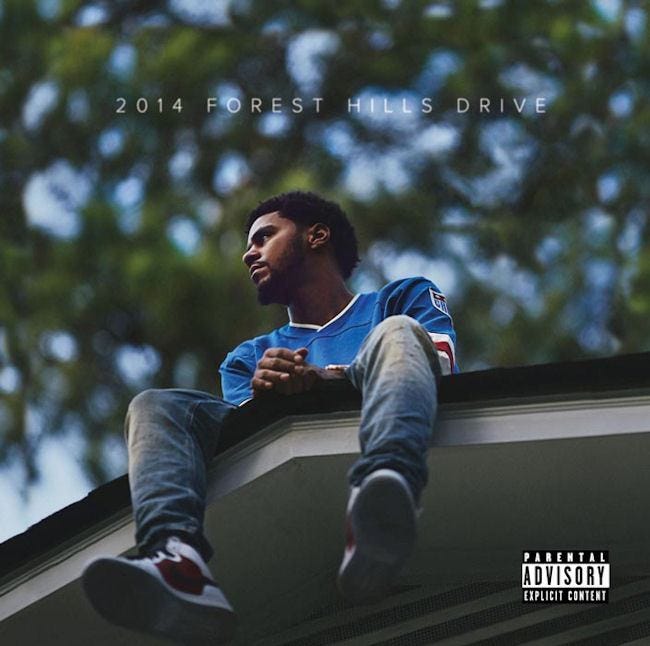
The biggest singles off J. Cole’s first two albums — “Work Out”, “Can’t Get Enough”, “Power Trip”, and “Crooked Smile” — went Platinum by targeting the pop charts. Weeks after Forest Hills Drive was released, “No Role Modelz” became Cole’s first rap anthem to achieve radio success. While many people consider the track a contradiction — claiming that Cole’s lyrics are just as shallow as the hook’s anti-Hollywood message — I couldn’t care less. It features the catchiest production of his career; as soon as Cole raps, “First thing’s first, rest in peace Uncle Phil, for real,” you’re hooked.
13. “Farewell” (2010)
Album: Friday Night Lights
Producer: J. Cole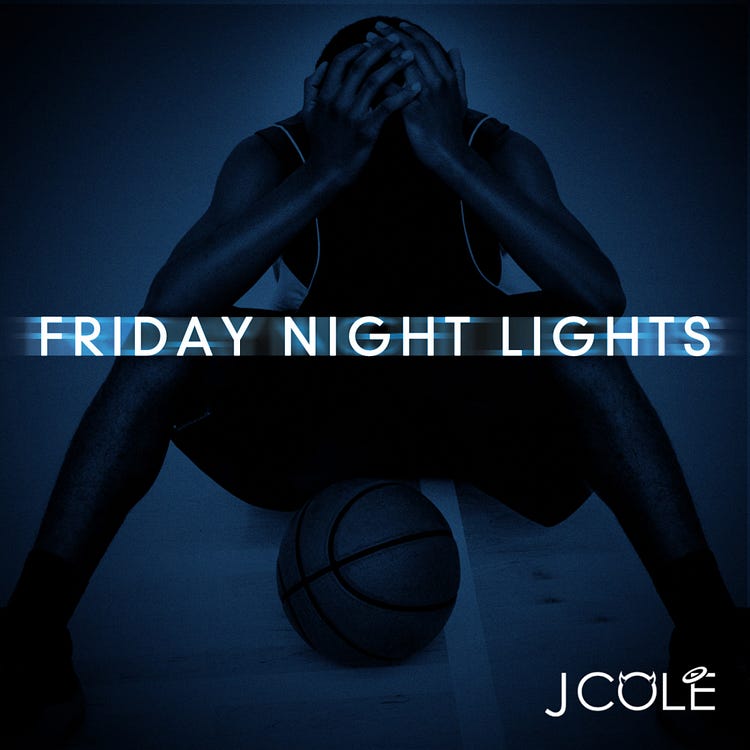
Over the years, J. Cole has reminded fans that his third mixtape, Friday Night Lights, was intended to be his debut album but the label didn’t think it would sell. It’s too bad, considering Cole World, released one year after the mixtape, pales in comparison. Friday Night Lights sounds more like a debut, with Cole sounding as hungry as ever; and “Farewell”, the project’s closing number, serves as a perfect curtain-call. The track encapsulates Cole’s response to his newfound fame, while, aside from a short break between his opening and closing verses, he raps non-stop for three minutes. It’s one of the best performances of his career.
12. “January 28th” (2014)
Album: 2014 Forest Hills Drive
Producer: Nick Paradise and Dré Charles of Team Titans

During the eighteen months between the release of Born Sinner and Forest Hills Drive, J. Cole was rarely heard from; and so, when the latter arrived, without any prior singles, album-opener “January 28th” served as Cole’s ‘State of the Union’ address. He had never sounded so calm yet confident, using the opening lines to remind us of his greatness. The second verse is the highlight, and one of the album’s best, as Cole raps, “What’s the price for a black man life? I check the toe tag, not one zero in sight/I turn the TV on, not one hero in sight/Unless he dribble or he fiddle with mics.”
11. “Lost Ones” (2011)
Album: Cole World: The Sideline Story
Producer: J. Cole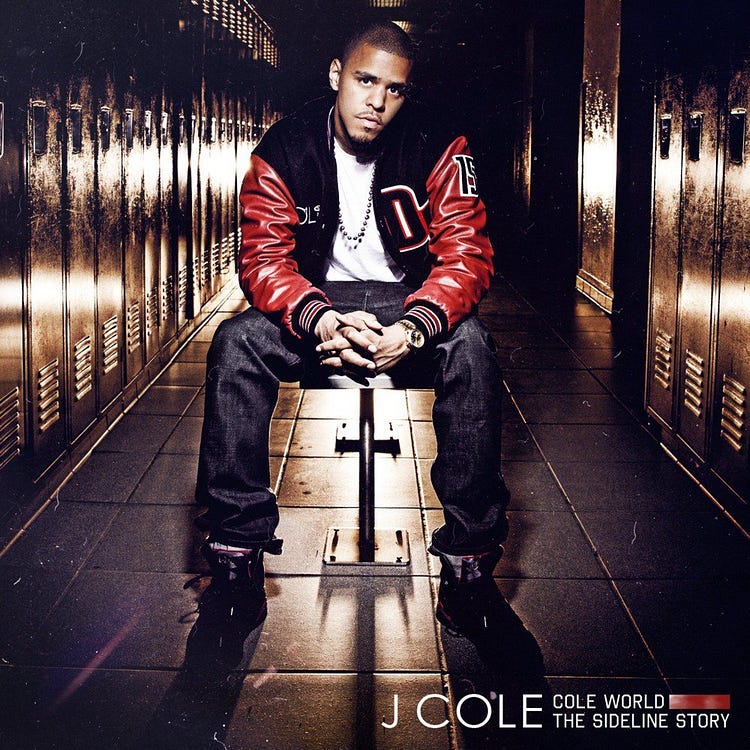
J. Cole is one of the most skilled story-tellers of his generation, drawing comparison to Nas, the GOAT of that club. It all started on “Lost Ones”, Cole’s most powerful, heart-wrenching song ever. In a tale focused on abortion, Cole spends the first verse rapping from the perspective of a man who impregnated a woman. On the second he raps as the woman, raising his voice an octave for effect, berating the man for manipulating her. In the final verse Cole raps back-and-forth from both perspectives, simulating an argument, before the man decides that abandoning the child makes him no better than his father. It’s perhaps the best verse of his career, showcasing his unmatched ability to empathize in such a way that, the first time hearing it, you’re certain Cole was the man in the story.
10. “Let Nas Down” (2013)
Album: Born Sinner
Producer: Nate Jones & J. Cole
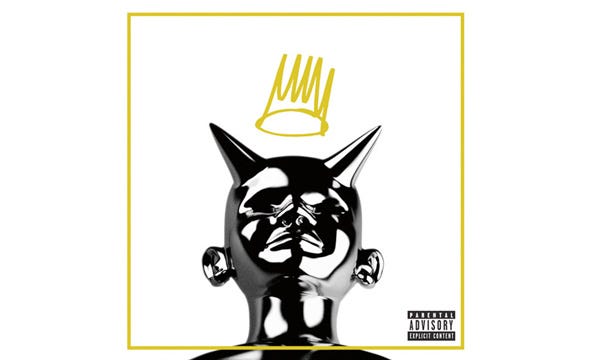
With Roc Nation preventing the release of his debut album until he stumbled on a hit single, J. Cole succumbed to the label’s demands. The R&B-soaked “Work Out” went 2x Platinum, but came with consequences. Following its release, Cole’s mentor, producer No ID, called saying that Nas, disappointed in the fact that Cole sacrificed his artistic potential by selling out for commercial success, hated the song. Gutted by his idol’s disappointment, Cole penned an entire track to make it up to him. In theory, this had all the makings for a cheesy song that would fail to resonate; instead, Cole not only made personal amends on the track, but made it a stand-alone classic by using the experience to spend its entirety honoring hip-hop’s legends.
9. “Cole Summer” (2013)
Album: N/A
Producer: J. Cole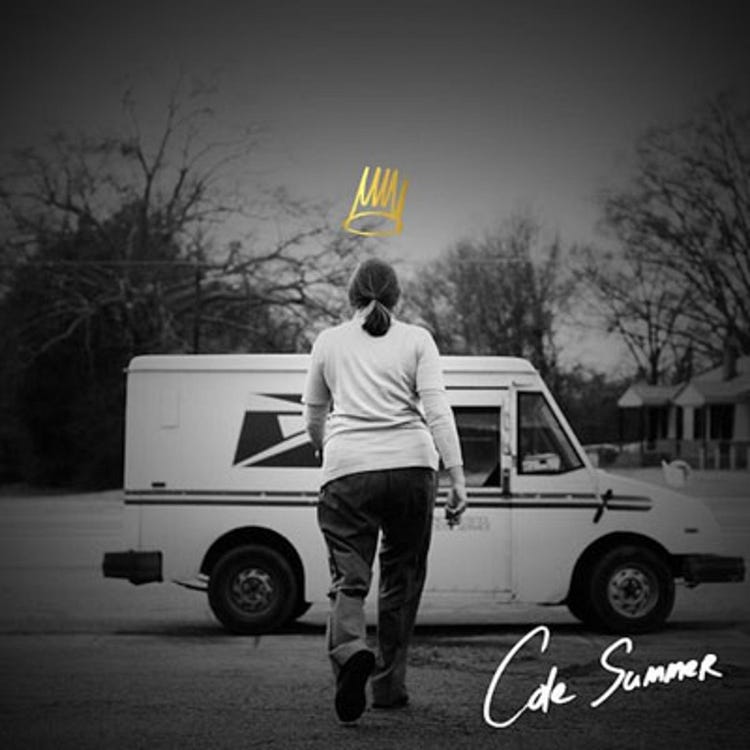
J. Cole dropped “Cole Summer” as a SoundCloud loosie on April 30, 2013, two months before his sophomore album was set to be released. Nineteen months since his debut album, hip-hop was wondering whether Cole would redeem himself after a lackluster first offering; “Cole Summer” proved that he wasn’t worried. Over an epic Lauryn Hill sample, which he reminds us he didn’t clear, Cole raps off-the-cuff, submitting perhaps the most honest and humorous attempt at self-deprecation in hip-hop history, rapping, “Throwing thousands in the strip club with Drizzy/Difference is I’m throwing four, he’s throwing fifty.”
8. “Love Yourz” (2014)
Album: 2014 Forest Hills Drive
Producer: Illmind

J. Cole has always seemed to have a grasp on what truly matters in life, preferring Maslow’s hierarchy of needs over the finer things. “Love Yourz” — the closing song on an album intent on reminding listeners that happiness is deeper than material objects, status, and perception — is Cole’s thesis. For most rappers, a song this simple and honest would come off as forced; in what is a testament to his guy-next-door image, Cole comes across passionate and emotional, rapping, “Always gon’ be a bigger house somewhere, but nigga feel me/Long as the people in that motherfucker love you dearly/Always gon’ be a whip that’s better than the one you got/Always gon’ be some clothes/That’s fresher than the ones you rock/Always gon’ be a bitch that’s badder out there on the tours/But you ain’t never gon’ be happy till you love yours.”
7. “Get Free ColeWorld” (2012)
Album: N/A
Producer: Major Lazer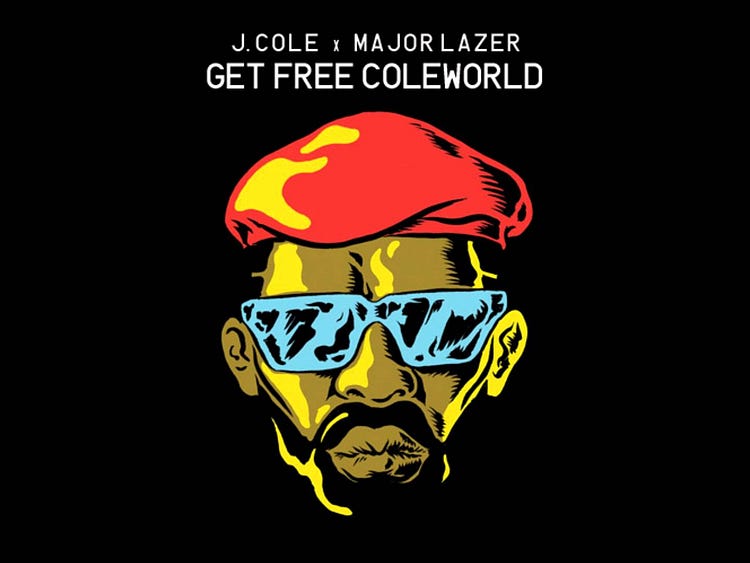
J. Cole dropped this gem in September 2012, during the Born Sinner recording sessions. We’ll never know why this wasn’t included on an album; sure, the Cole Stans love it, but it deserved proper exposure. At a time when electronic music had a stranglehold on hip-hop, Cole hit the jackpot with a gorgeous beat from Major Lazer. The second verse features Cole submitting one of the best flows of his career, one you must hear to appreciate. His delivery is so impressive that it distracts you from listening to what he’s saying, namely, that he’s busy shitting on the game, rapping, “I’d rather make tracks where I bleed into it/The single’s only the look to sell these niggas the book, I can only pray that one day you’ll read into it/If not, fuck it, I got my own problems/Fuck ya beats nigga I produce my own albums.”
6. “The Cure” (2012)
Album: N/A
Producer: Kanye West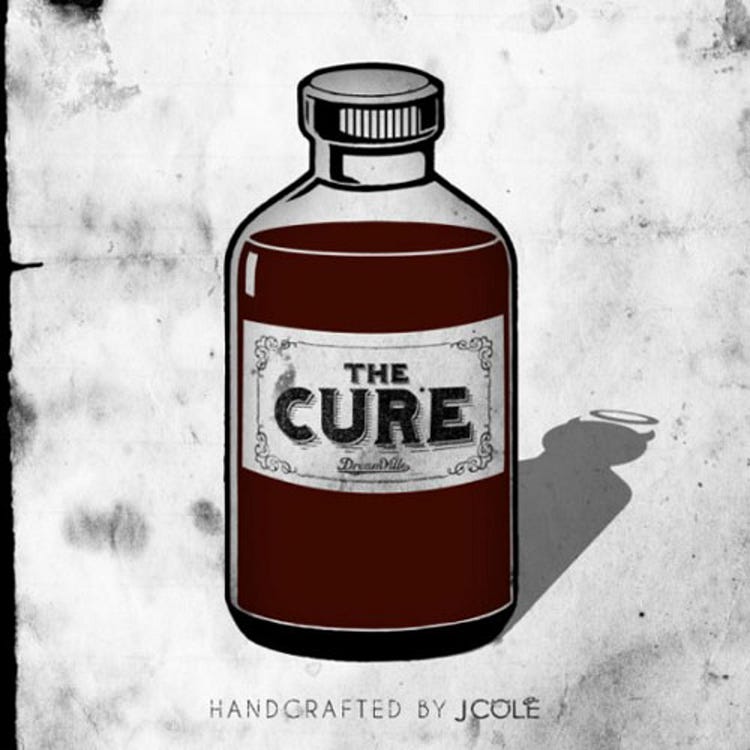
Drake uses each track in his AM-PM series to display his lyrical prowess, rapping off-the-cuff for four minutes without hooks. “The Cure” finds J. Cole taking a page out of Drizzy’s playbook, only with better results. Rapping over “Lift Off” — which, he reminds us, was an amazing beat that Kanye and Jay-Z wasted on 2011’s Watch the Throne — Cole spills his thoughts over a non-stop, four-minute verse. More than anything, its the most fun Cole has ever had on a song. He’s cockier than you’ve ever heard him, speaking down on every one of his peers; then he reminds us that he’s realer than anyone else out, someone who speaks on issues like poverty and African-Americans’ socioeconomic struggles; but nothing beats when he drops an All-World humble-brag, saying that he took underprivileged kids to an amusement park but we didn’t hear about it because he doesn’t talk to the media. Even J. Cole deserves to be petty once in awhile.
5. “Lights Please” (2009)
Album: The Warm Up
Producer: J. Cole
“Lights Please” started it all. The song got J. Cole into a room with the President of Urban Music at RCA Records, Mark Pitts, who played it for Jay-Z, who signed Cole to Roc Nation strictly off the strength of the hit. It’s easy to see why. Featuring, quite possibly, the best production of Cole’s career, the track is more polished than anything else on The Warm Up. The fact that Cole, at 23 years-old, no less, produced, wrote, and recorded such an undeniable hit, was the first evidence that he was a superstar in the making.
4. “Power Trip” (2013)
Album: Born Sinner
Producer: J. Cole

Ironically, the same album that featured “Let Nas Down” — J. Cole’s apology to Nas, if not his entire fan base, for selling out with “Work Out” — is responsible for giving us the biggest hit of his career. “Power Trip”, the first single released ahead of Born Sinner, proved that Cole could dominate the charts without shamelessly pandering to the radio. Instead, the track displayed his artistic growth, both as a producer and a rapper, with Cole’s delivery and Miguel’s lush vocals blending perfectly over a distorted guitar loop.
3. “Breakdown” (2011)
Album: Cole World: The Sideline Story
Producer: J. Cole
While Cole World’s other standout, “Lost Ones”, is the first song mentioned when discussing J. Cole’s story-telling skills, the album’s closing track, “Breakdown”, is superior. It finds Cole speaking on his relationship with his absentee father, but rather than coming from a place of anger, he evokes an honesty that’s touching. The heartbreaking tale opens with Cole rapping, “Look, I just shed tears homie and no I ain’t too proud to admit it/Just seen my father for the first time in a minute/When I say a minute I mean years man/Damn, a whale could have swam in them tears fam.” When he ends the verse with — “Maybe I should be telling you fuck you cause you selfish/But I want a father so bad, I can’t help but…breakdown” — it’s hard not to do the same.
2. “Too Deep For the Intro” (2010)
Album: Friday Night Lights
Producer: J. Cole
An Erykah Badu sample sets the stage for one of the best intros to any hip-hop project ever. J. Cole is candid, paying tribute to his roots — reminiscing on his upbringing in North Carolina and his experiences in college — while looking ahead to what his future holds. At the time, in the fall of 2010, no rapper besides Drake was worthy of being considered the face of rap’s newest generation; if there was ever a specific moment when Cole threw his name into the conversation, “Too Deep for the Intro” was it.
1. “Return of Simba” (2011)
Album: N/A
Producer: Elite
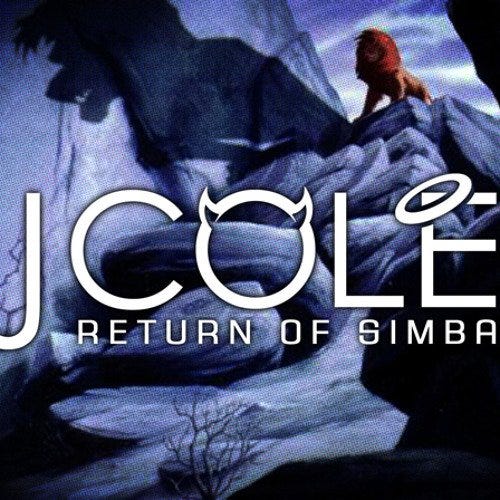
By the spring of 2011, with his debut album due out that fall, many wondered whether J. Cole would be able to match the hunger he’d displayed on back-to-back classic mixtapes. The doubters got awfully quiet when, on May 22, he released “Return of Simba.” Cole used the track to send a a warning shot to the rest of hip-hop: if you’re still doubting me, tread lightly. By the time he serves up his last lines — “I’m ahead of my time/N***** scared of my future, I know they dreading my prime/Cause I only make classics, what they take? Timing/Cole under pressure, what they make? Diamonds” — Cole hadn’t just arrived, he’d catapulted straight into the upper echelon of the rap game.









